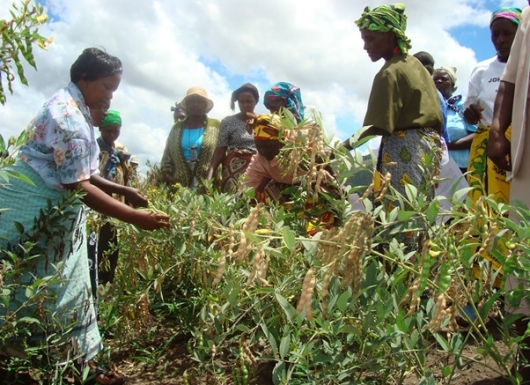Submitter: (ICRISAT)
The convergence model for Inclusive Agribusiness and Entrepreneurship focuses on empowering, strengthening, and transforming underprivileged communities through convergence agriculture, nutrition, value chain, and agri-business models. The aim is to address key issues, including malnutrition, unemployment, and the need for disaggregated value chains.

· Telangana (India):
o Giri Poshana initiative improved dietary diversity and anthropometric outcomes among the Particularly Vulnerable Tribal Groups (PVTGs) preschoolers
o Recognized by NITI Aayog under “Inclusion of Millets in ICDS” (2023) (Source: FAO, 2022; NITI Aayog, 2023)
· Odisha (India):
o Community-led millet food processing unit under “local-to-local” model
o 3.5 tons of products processed in Year 1
o USD 8,448 revenue generated
o Reached 55 schools, 3,600+ children under mid-day meal/nutrition schemes
· Impact Highlights:
o 15–20% reduction in malnutrition (India pilot sites)
o 20–30% income gains from integrated CSA-nutrition interventions
o 150+ women/youth trained; 30% launched agri-nutrition enterprises
· Institutional & Media Acknowledgement:
o Featured by Dutch National Broadcast (NOS, 2023)
o Highlighted in FAO’s 2023 Millets Report ( Source: FAO, 2023; NOS article)
Book Chapter: A Better World Vol. 9 (2023) – Datta Mazumdar et al.
The L4 Convergence Model offers substantial potential for scalability due to its low-cost, modular structure and adaptability to various agro-ecological and institutional contexts. Aligning with existing government schemes, such as ICDS, MGNREGA, NRLM, and school nutrition programs, enables efficient resource utilization without requiring new infrastructure. Its focus on climate-resilient, nutrition-sensitive crops such as millets and pulses ensures relevance across geographies. Community-led implementation through SHGs, FPOs, and local federations promotes ownership and long-term sustainability. Adoption is supported by operational toolkits, capacity-building modules, and templates developed by ICRISAT, minimizing the need for external technical support. With demonstrated success and growing interest from governments and donors, the model is ready for wider replication through cross-sectoral partnerships.
Dr Dinesh Kumar Chauhan: dineshkumar.chauhan@icrisat.org / +91 9810186462